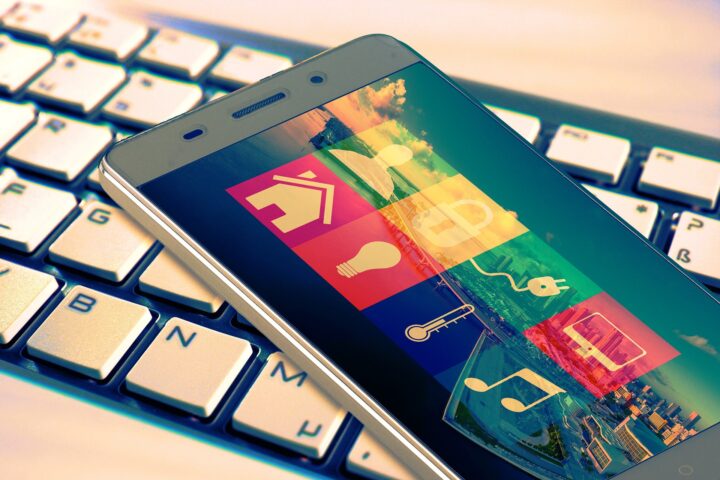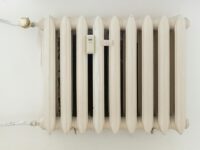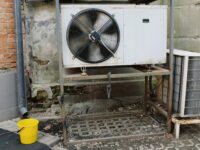The following contribution is from another author.
Of the many renovations people make to their homes these days, it’s the advent of smart home technology has become one of the most exciting upgrades people undertake. But sometimes, we need to look at the concept of not just upgrading our homes so we can turn the heating on before we get home but, actually, if we’re able to be more efficient in terms of our energy use. Let’s show you some of the key approaches to using smart home tech, not just to improve your home’s efficiency, but in reducing your energy bills.
Smart Home Tech and How It Makes Our Homes More Efficient
There are so many different tools here. Smart thermostats can learn our habits and automatically adjust temperatures to optimize comfort and energy use. However, if we’ve got ineffective windows with broken seals, it’s vital to use window replacement services to get this sorted first.
Smart home tech can help us in so many different ways in being more energy efficient. For example, we can use advanced insulation and efficient motors in our appliances to reduce energy consumption. But we have to remember that while there are so many different ways to reduce our energy consumption, if we haven’t got a proper working home in the first place, is it actually going to be worth our while?
Will Smart Home Tech Actually Reduce Our Energy Bills?
The fact is that smart home technologies, whether it’s energy-efficient lighting or smart thermostats, can lead to significant cost savings for homeowners because they can optimize heating and cooling to reduce energy waste, detect usage patterns, or turn off devices when not in use, as well as solar panels lowering our reliance on the grid and reducing energy costs. The fact is that energy savings from smart home tech depend on a number of different factors:
- How they are integrated and utilized.
- The specific devices used.
- The home’s existing energy efficiency.
The latter is a particularly important point. If you don’t have a particularly energy-efficient home, this may make the smart home devices redundant. When our homes are not energy efficient in the first place, smart home devices may be able to determine how much energy we are using, but it’s putting a band-aid over a much larger wound.
Fix Your Home First
It’s far more important for you to ensure that your home is energy efficient with regards to the basics first. This means looking at if you are losing heating through your windows, especially during the winter. It’s also important to look at minimizing heat from escaping in simple ways. As nice as it is to have smart home tech, you may not benefit from its true capabilities if you are losing heat through a crack underneath the window or poor insulation in the loft.
Lots of people love the fact that smart home tech is one step into the future and is an excellent toy, but we need to remember that if we’re going to utilize our home’s capabilities, then we need to make sure our home is fit for purpose in the first place. This means addressing the basics like insulating the attic and making sure that heat does not escape. Now is also a good time to make sure that your internet can actually support the tech you’re investing in. There are a lot of satellite internet providers online you can get in touch with, which is a great way to get your home up to speed.
The Overall Costs
There are a few caveats with regards to smart home devices and overall energy efficiency because you need to factor in the costs of the devices and systems themselves, but also the energy consumed by them. Generally, smart home technology, when used effectively, can reduce overall home energy consumption by 20% to 30% on average, but the technology itself is going to use energy.
Simply having smart home devices is not the final solution, but they need to be properly configured and utilized to ensure that they optimize energy usage. Typically, smart home devices do not consume excessive energy, but it depends on how much you wish to play with these types of toys. This is why there’s a number of factors to consider when you are implementing smart home tech purely to reduce your energy bills, including the following:
- The upfront costs of the purchasing and installation of smart home devices, as well as the overall compatibility and integration of different smart home systems.
- The ongoing maintenance and the potential subscription fees for cloud services.
- Ensuring the smart home devices themselves do not consume excessive energy.
- Being willing to change your behaviors to maximize efficiency.
The latter point is particularly important because many people think about smart home devices as being a way to instantly save money on their electricity, but while smart device can turn off things when not in use, you’ve got to look at your general energy consumption and see if you’ve got particularly bad habits. You need to consider the practical and the financial factors involved in both.
Will Smart Home Tech Change Your Home Life?
It is very easy to start thinking that as soon as we get some posh toy, it changes our energy consumption habits overnight. The fact is that you need to consider the energy consumed by the smart devices, as well as be ready to make changes to your behavior, but you also need to remember that if you go down the rabbit hole of buying different smart home devices, you will need to make sure they are properly integrated to maximize your efficiency.
Customizing the smart home setup to match the needs and usage patterns of your household is critical as this is what will help you maximize the energy efficiency benefits. If you are looking to enhance your energy savings, you may wish to combine your smart home tech with renewable energy resources such as solar panels.
The key is about taking a holistic and strategic approach. Smart home technology can certainly deliver the goods, but you have to bear in mind that to improve your overall home’s efficiency, you cannot rely on smart home technology as a magic bullet. You’ve got to understand what it can truly do for you, but you also need to be willing to change your overall energy habits as well.
















